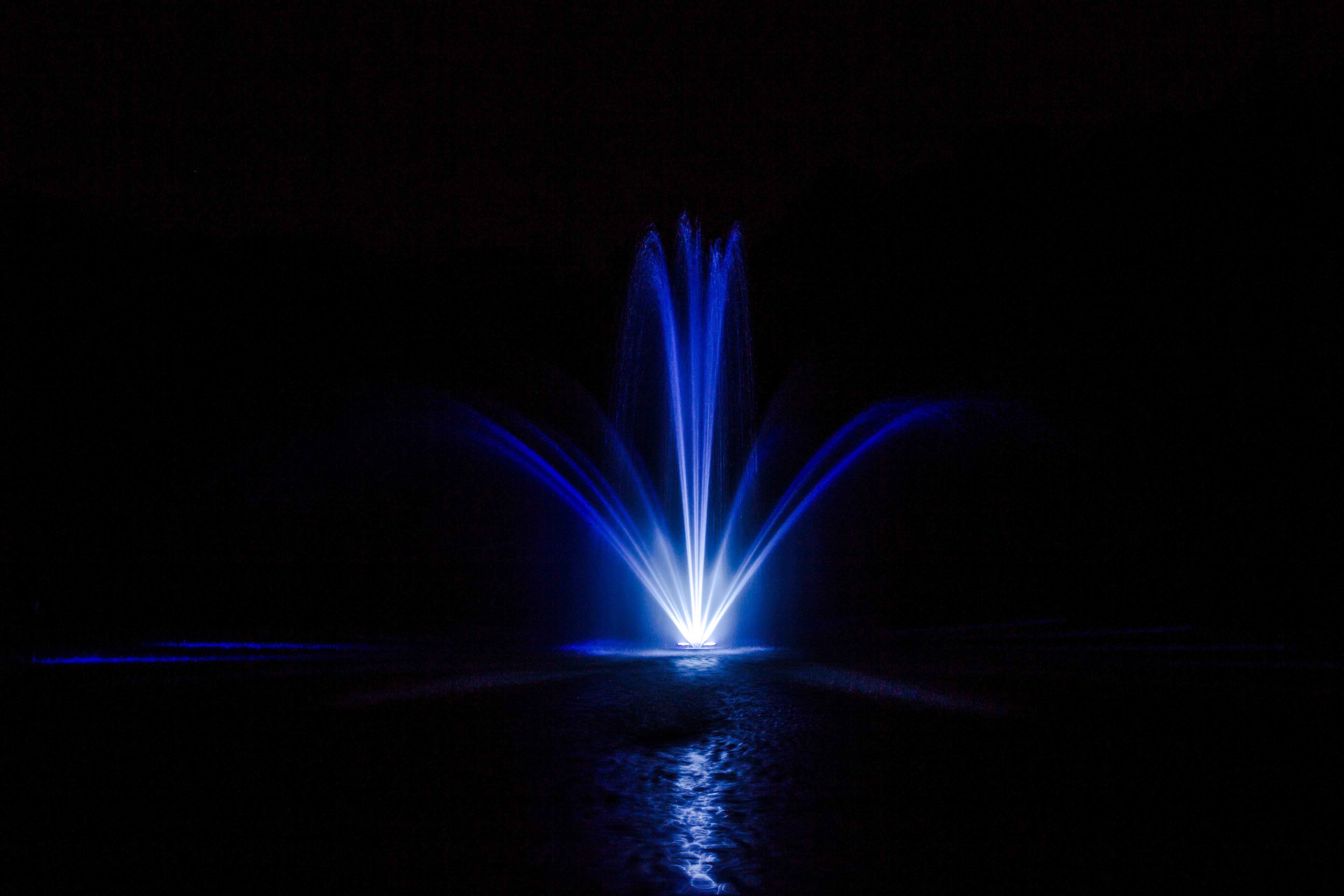Please choose a topic to read more.
- Why Do I Need an Aerator?
- Aerator Applications
- Aerator Maintenance Tips
- Frequently Asked Questions
- Aerator Comparison Table
Why Do I Need an Aerator?
Aerators maintain healthy dissolved oxygen levels in your pond while ridding the water of unwanted nutrients such as nitrogen, carbon dioxide and hydrogen sulfide. Healthy oxygen levels reduce fish kill and prevent algae and weeds from taking over your pond.
Aerators are critical for effective wastewater treatment as without oxygen the breakdown process would take a long time, while yielding incomplete conversions of pollutants and producing a foul odor.
Aerator Applications
Aquaculture – Fish need oxygen just like all other animals, and low levels of dissolved oxygen in ponds and lakes can cause fish to suffocate or die. Aerators supplement normal oxygen supplies, keeping the fish active, healthy and able to meet normal metabolic demands.
Wastewater Treatment – Aerators provide oxygen to speed up the process of biodegradation in water treatment facilities. This reduces the need to use harmful chemicals to breakdown organic material in wastewater.
Aerator Maintenance Tips
Every so often, pull your aerator out of the water and give a good once-over. This may be necessary as often as once a month, depending on your area. Check for damage to the propeller and nicks on the power cord. Remove debris from the unit as this could cause the aerator to have reduced efficiency, or to stop working altogether.
Never open the motor yourself! This will void the warranty and possibly cause irreparable damage to the aerator. In the event of a malfunction, send the aerator to Powerhouse for repair or take it to a local authorized service center.
Have your equipment serviced every 4 or 5 years to keep them in top condition and running at maximum efficiency for many years to come.
Frequently Asked Questions
1) Are your products heavy?
Here are some rough figures for you, but please don’t hesitate to ask for a closer estimate on specific pieces of equipment:
- Ice Eater/Aerators weigh between 35 to 45lbs
- Our larger hp Olympus Series Fountains weigh about 85lbs (this is without lights)
2) How do I know which products best fit the needs of my lake/pond?
Size, depth, and water conditions are only a few factors that will determine which of our products will best satisfy your ponds’ needs. Please see our Comparison Table for more information.
3) Do I need to hire a professional to install my fountain/aerator/I.E.?
All Power House products require little or no assembly and can be installed by one person, if necessary. Some larger units may require 2 people and professional installation may be needed depending on the power hookup.
4) What’s my energy bill going to look like at the end of the month?
Every piece Power House builds has a running Amperage of less than 10 Amps at 115V (divide running Amps in half for 230 Volt). Your specific application will determine how many hours a day you run and at which times.
Amps x Volts = Watts Watts / 1000 = Kilowatts per Hour
5) How do I anchor my floating fountain or aerator?
Power House recommends using ½ cinder block tied to the rope and placed on pond/lake bottom firmly and at a 45° angle.
6) Can I run my fountain/aerator year-round?
Power House recommends that you remove your equipment from the water during the freezing months and that you store it in a place where the temperature stays above freezing.
7) Can I get every Olympus pattern in every size fountain?
No, to ensure top performance and energy efficiency, Power House has made certain patterns exclusive to each particular size fountain.
8) What’s the advantage of having a dual propeller on my aerator?
Dual prop assemblies increase the aerator’s GPM’s (Gallons Per Minute) by 25%. The design also stabilizes the position of the float more than a single prop and its umbrella pattern allows for a more aesthetically pleasing application of your lighting.







